Shape identification Extra Challenge Math Worksheets for Ages 3-7
6 filtered results
-
From - To
Enhance your child's geometry skills with our "Shape Identification Extra Challenge Math Worksheets for Ages 3-7". Designed for young learners, these engaging and challenging printable sheets promote critical thinking and spatial awareness. Each worksheet offers a variety of interactive shape identification tasks, encouraging children to recognize, differentiate, and name basic shapes in exciting new ways. The activities vary in complexity, providing extra challenges that sharpen problem-solving abilities and boost confidence. Perfect for both classroom and home use, our math worksheets are an excellent resource for building foundational geometry knowledge in a fun, educational environment. Discover the joy of learning with us!
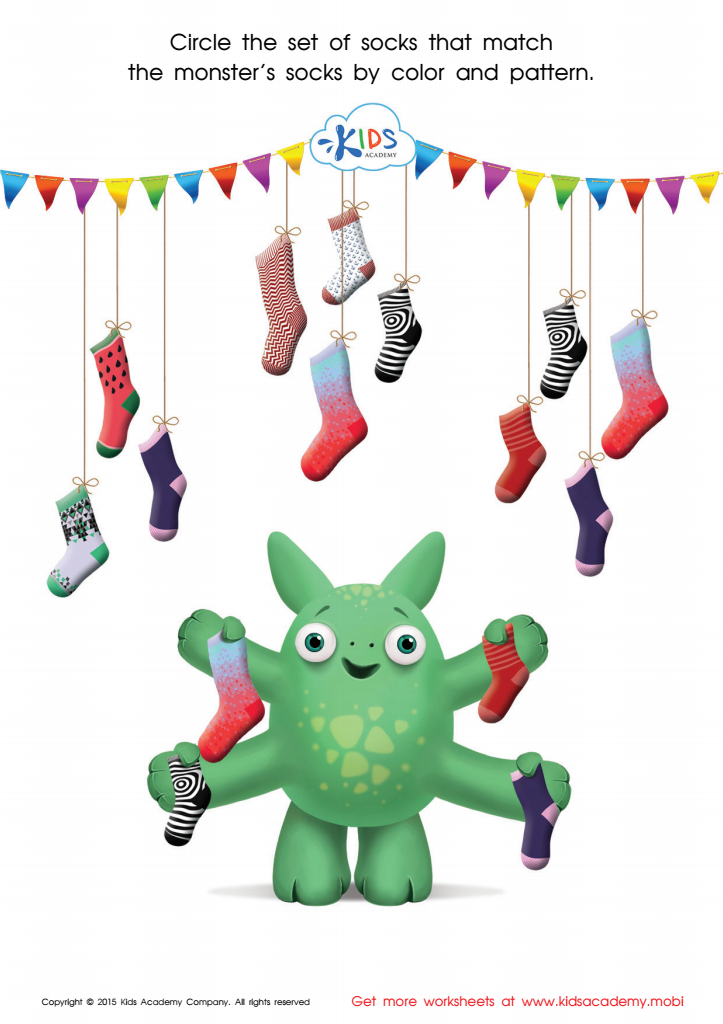

Sort the Monster's Socks Worksheet
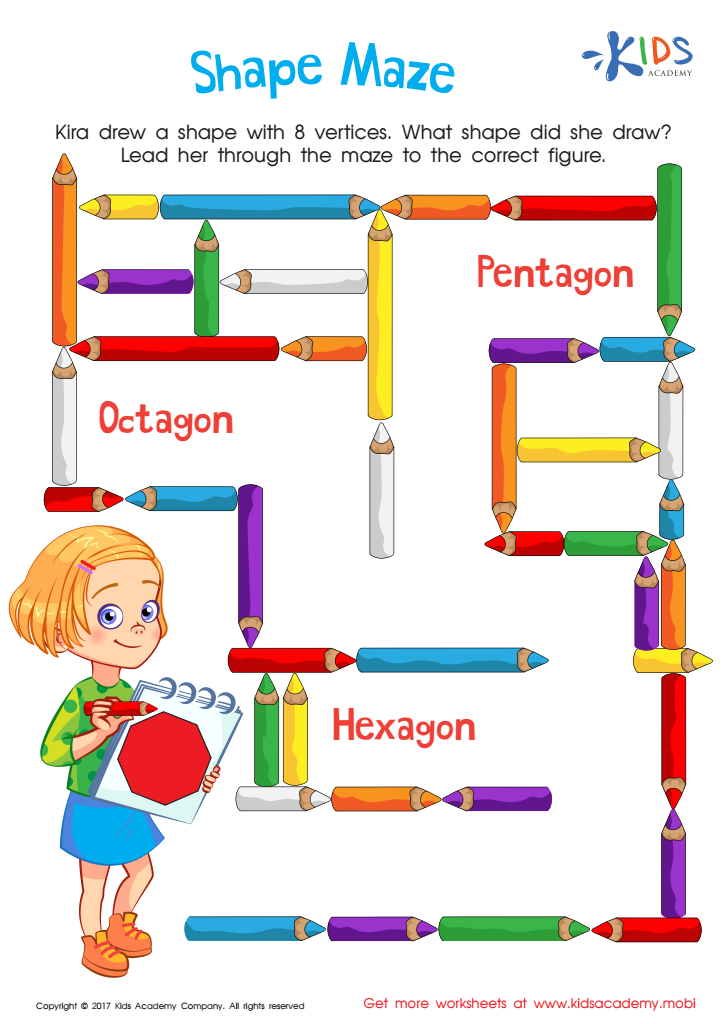

Shape Maze Worksheet
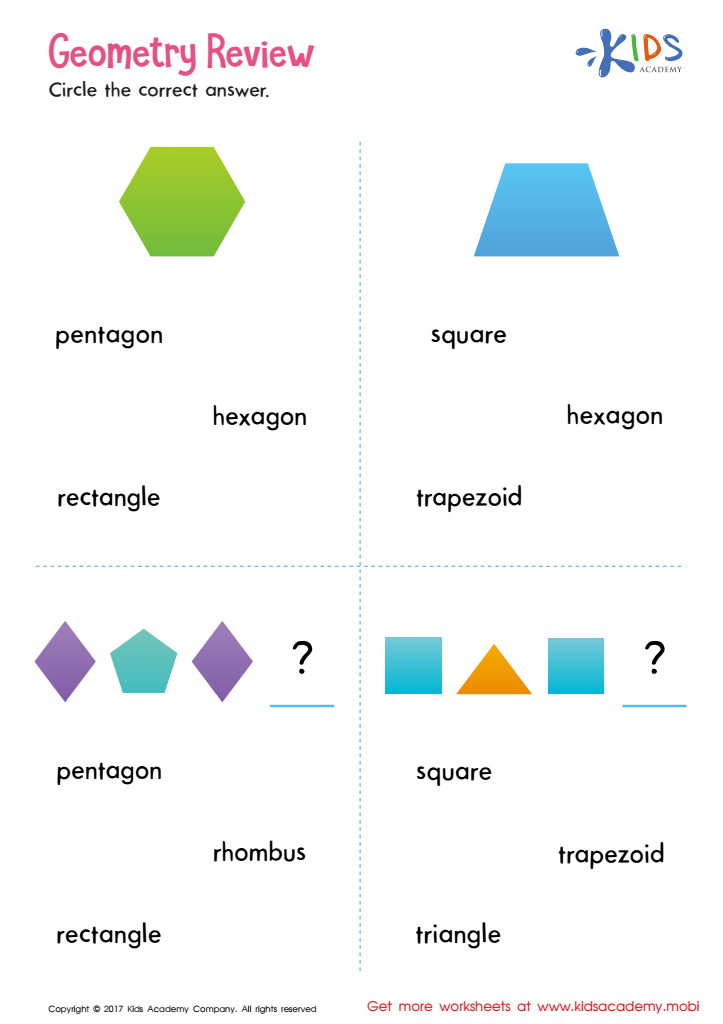

Geometry Review Printable
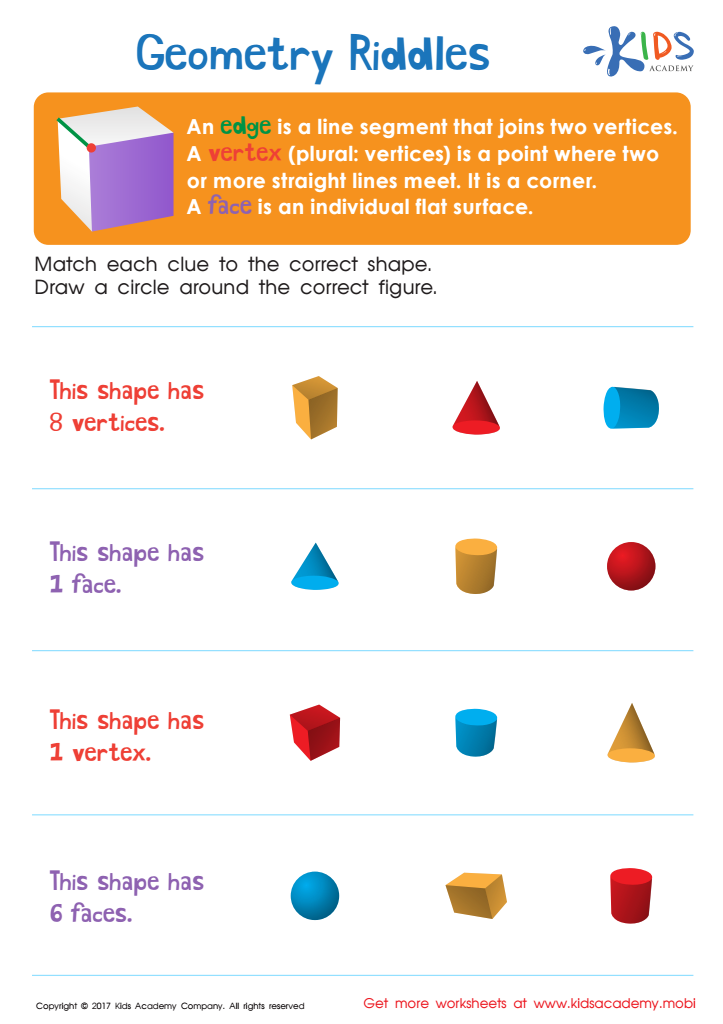

Geometry Riddles Printable
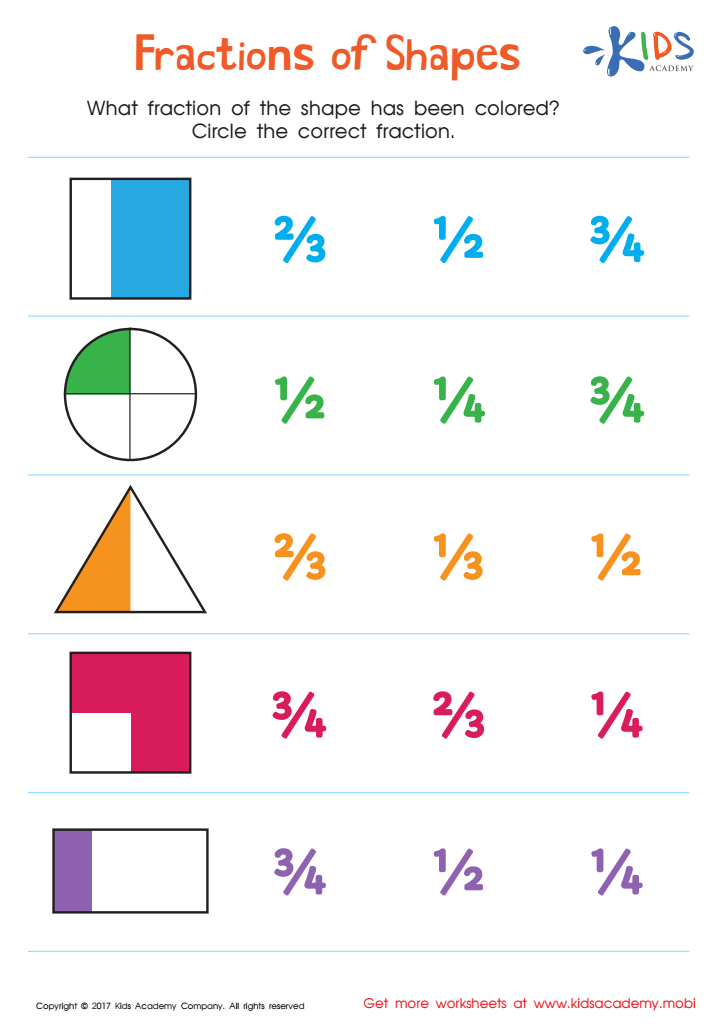

Fractions of Shapes: Math Concept Worksheet
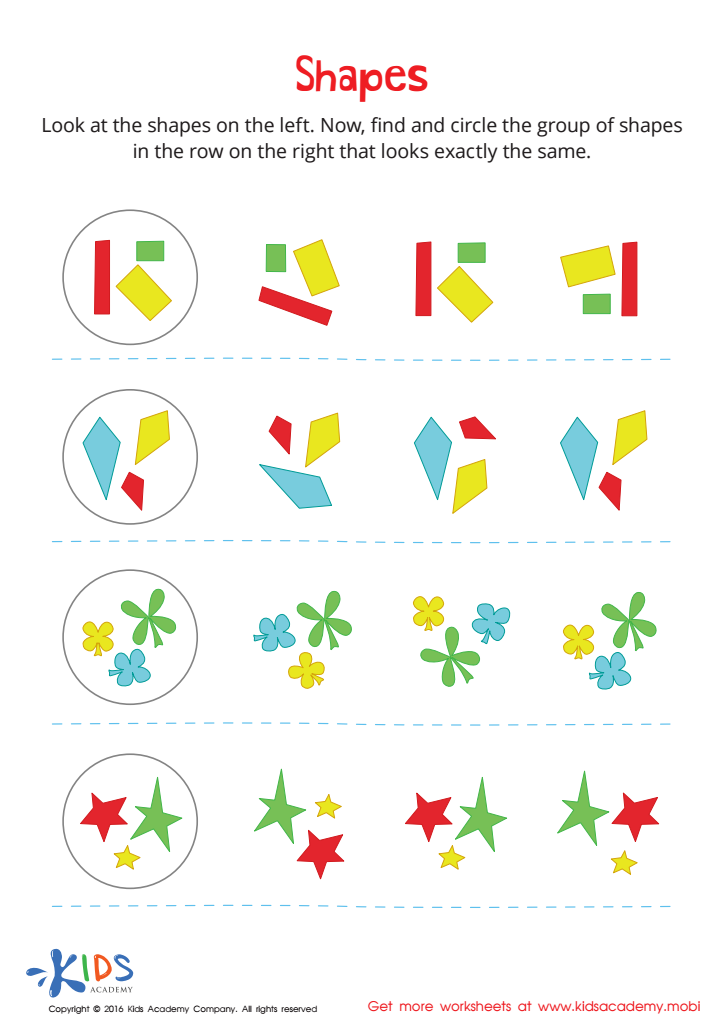

Shapes Worksheet
Shape identification is a fundamental aspect of early childhood education, critical for cognitive development in children aged 3-7. Parents and teachers should prioritize this aspect because it lays the groundwork for more complex mathematical and spatial reasoning skills. Recognizing and identifying shapes enhances a child's ability to categorize, compare, and differentiate objects, which directly translates to better problem-solving abilities.
Interactive shape exercises stimulate a child's curiosity and engagement, promoting active learning. This form of learning also aids in the development of fine motor skills as children use their hands to trace, draw, or manipulate shapes. Furthermore, early shape recognition is closely linked to the development of early literacy skills. Understanding shapes helps children learn geometric terms, which enriches their vocabulary and language comprehension.
For young children, identifying shapes extends beyond academic achievement; it can also enhance their confidence and social skills. Kids often find satisfaction and pride in completing shape-related tasks, which boosts their self-esteem. Additionally, collaborative shape activities foster teamwork and communication skills.
In short, parents and teachers should care about shape identification activities because they are instrumental in fostering a well-rounded early development, integrating cognitive, motor, linguistic, and social skills that are essential for lifelong learning success.
 Assign to My Students
Assign to My Students





















